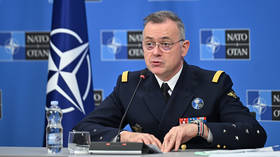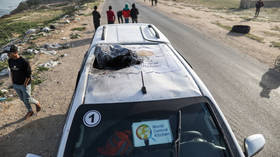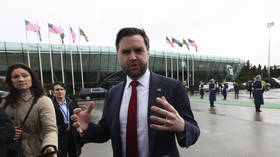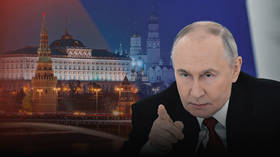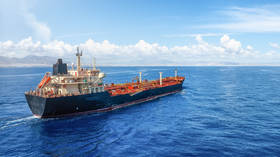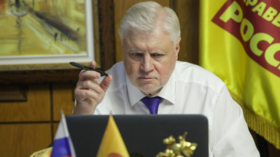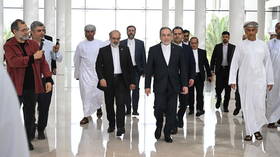Almost 12 months on from Maidan... how Ukraine was destroyed
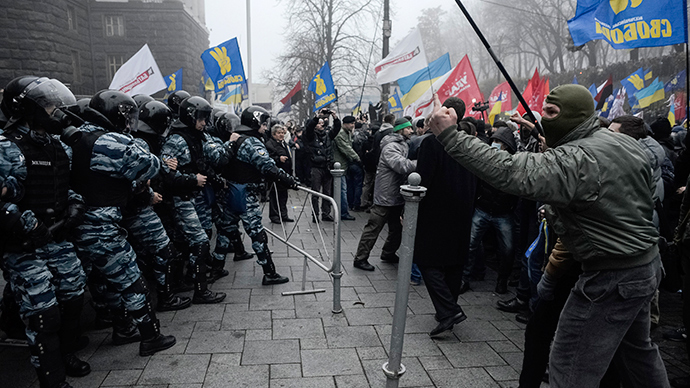
Following the violent coup/revolution and Europe’s most destructive war for two decades, what’s been lost in the fog of information and disinformation are the reasons Ukraine fell apart.
Rarely has the international press been more polarized than it is currently over Ukraine. Sadly, an “us or them” narrative emerged almost instantly and hasn’t shown any signs of abating. The US media is selling a menace of unreality to its readers and its Russian counterpart is little better. Regrettably, in a time of almost unlimited information, the general public understands less than ever as spin replaces truth.
Another worrying development has been the emergence of shady US PR activists, masquerading as journalists, which dupe traditional media with tactics tested in the Middle East. Unable to counter with facts, they resort to personal attacks - if they find time after one-sided “nod-fests” purporting to be debates on Ukraine. While it's clear that US politics features only two parties, which are different sides of the same coin, classic European debate is more varied and nuanced than the US-style “with us or against us” narrative. Even Russia, a nascent democracy, has a healthier culture of debate than the American mainstream.
If you get your news from Moscow, a group of fascist, Russia-haters overthrew Ukraine’s elected government earlier this year. According to the Western corporate media, President Yanukovich fled in terror after his security services murdered innocent civilians in Kiev. If you watched CNN this summer, freedom-loving hipsters were fighting a war with dangerous terrorists in East Ukraine. In Moscow, the government forces were terrorists and the rebels were the freedom fighters. Confused? In the words of James Joyce: “It made him very tired to think that way. It made him feel his head very big.”

Who shot the protestors?
The fact is that nobody knows who shot the protestors in Kiev, the US line is Yanukovich’s forces, and German media blames pro-Maidan. Also, the proportion of neo-Nazis at Maidan - a bête noir for Russian TV - was small, though noisy and highly visible. That is not to make light of their extremism, just to point out that the vast majority of, initial, protestors were campaigning for a better life, not the far-right. How horribly ironic that their, genuine, activism has actually helped to make life in Ukraine even worse than it was pre-Maidan.
As for who are the terrorists? That’s best left to Gerard Seymour: “one man’s terrorist is another man’s freedom fighter.”
Which media is 100 percent truthful in coverage of Ukraine? Probably none of them. In a 24-hour broadcasting age, the facts are often the first casualty of the race to be first with the news. Not to mention that no pretense of balance exists.
Why did Ukraine’s fractious unity finally fall apart and why did an already impoverished state finally hit the bottom of the barrel? I think the answers to the death can be found in the birth. Birth, it turns out, was the death of Ukraine.
Ukraine is not a nation in the sense that most of Europe is. It doesn’t have a common language or shared history, nor does it have a fixed historical territory. In this sense it is analogous to Yugoslavia or the United Kingdom. The separatist areas are akin to the Irish situation in the 1920's, despite being part of the UK for a considerable length of time, the Irish would no longer accept London rule. This was because they didn't feel British and had another culture and language. People in Crimea and Eastern and Southern Ukraine feel the same towards Kiev.
While it may work as a federation - which the UK has moved towards - it doesn't work as a linear state. Present-day Ukraine was assembled by the USSR for logistical reasons. Moscow wanted to link the industrial east with the southern ports and the agrarian west. To facilitate this, huge movements of people took place.
For example, in Lviv, the western nationalist stronghold, a Polish majority were scattered to make way for rural Ukrainian peasants. Only 70 years ago, Lviv (or Lvov) was the 3rd largest city in Poland and its second largest cultural and academic center, after Warsaw. Conversely, the southern port of Odessa was, until a few generations ago, a city of the Jewish and Russian elite. They dispersed to Israel, Moscow, America and provincial cities of the USSR.

How Ukraine fell apart
Then, in 1991, the USSR collapsed and Ukraine lost its raison d’être. Suddenly language issues and petty nationalism took over. Kiev, fancying itself as a strident global capital, began to suck cash from profitable eastern industry and the west fell into a torpor of mass unemployment and extremely low wages for those lucky enough to work. This made finding “muscle” for Maidan rather easy. For many of the young west Ukrainian “activists” - generally accepted to have been paid - it was probably their first proper, well remunerated, job.
Another problem was that the central Ukrainian industrial base, around Dnepropetrovsk, Krivoy Rog and Kiev was largely beholden to the Soviet military-industrial complex, for the most part inherited by Moscow. This explains why Antonov - the famed plane maker - is currently on the verge of collapse.
Antonov - like countless other Ukrainian companies - simply cannot compete in western markets.
The Soviet system collapsed into oligarchy in both Russia and Ukraine. The smaller pool of oligarchs in Kiev rivaled their Moscow brethren for opulence, ambition and wealth. The snag was that the pot was much smaller in Ukraine and left little to be scattered to the populace.
In 1999, Russia got Putin, the state began to re-centralize and many billionaires had their wings clipped. This didn’t happen in Ukraine. Hence, in 2013, Ukraine was in a similar position to Russia in 1998. While reinvigorated Russia and the other significant neighbor, Poland, began to develop a middle class, Ukrainians were running to stand still - and often sliding further behind.
The, ultimately, disappointing “Orange” revolution of 2004 had introduced the US, NATO and the EU into the Ukrainian fray. In the years that followed, Kiev's kleptocratic elite, essentially, played the Western block off against Russia to get sweeter deals. By 2013, Yanukovich was in situ when the bluff was called and the Kiev cabal was forced to choose one or other. The West wanted the President to sign an Association Agreement with the EU; Russia tried to cajole him into a new “Eurasian Union.” Due to the divisions inside the state, either outcome was going to cause problems. Who's to say that if Yanukovich had signed the EU deal that an alternative Maidan wouldn't have broken out in Kharkov or Donetsk?

Many options - none good
On the subject of Yanukovich, it's worth mentioning just how dreadful his regime was - the conclusion of 20 years of state-licensed robbery in Ukraine. However, the kleptocracy wasn't confined to upper echelons; it snaked right down to primary schools and maternity hospitals. While Yanukovich wasn't a pleasant ruler, Ukrainian corruption didn't start with him and it hasn't ended with him either. It's endemic.
Once Kiev's Maidan protests started, it's obvious that a grouping within Washington's State Department sensed an opening and took full advantage. Moscow's subsequent moves appear to have been reactionary rather than planned, but not excusable. It's also likely that the Americans were surprised by how quickly momentum developed after they first got involved.
The end result is that Washington and Brussels are propping up an oligarchic regime led by Kiev and Lviv interests and that Moscow is stuck, for now at least, with a shattered eastern enclave which identifies as pro-Russian. Of course, the Kremlin also won the prize of Crimea, but that's not a free gift. After 23 years of misrule, Crimea's infrastructure and economy is miles behind “mainland” Russia. Upgrading would be costly, even without sanctions and economic turmoil.
For ordinary Ukrainians, the choice is stark. Either stay at home and try to rebuild a viable state, or states, from a damaged carcass or leave for the far wealthier EU or Russia, if possible. As migrants, they will be a cheap, mostly disciplined and well-educated labor force - at home prospects seem grim. One year on from the initial hope of Maidan, reality is dawning in Ukraine. If it were a movie it'd be less “It's A Wonderful Life” and more “Misery.”
Ukraine now has many options - none of them are good.
The statements, views and opinions expressed in this column are solely those of the author and do not necessarily represent those of RT.
The statements, views and opinions expressed in this column are solely those of the author and do not necessarily represent those of RT.



